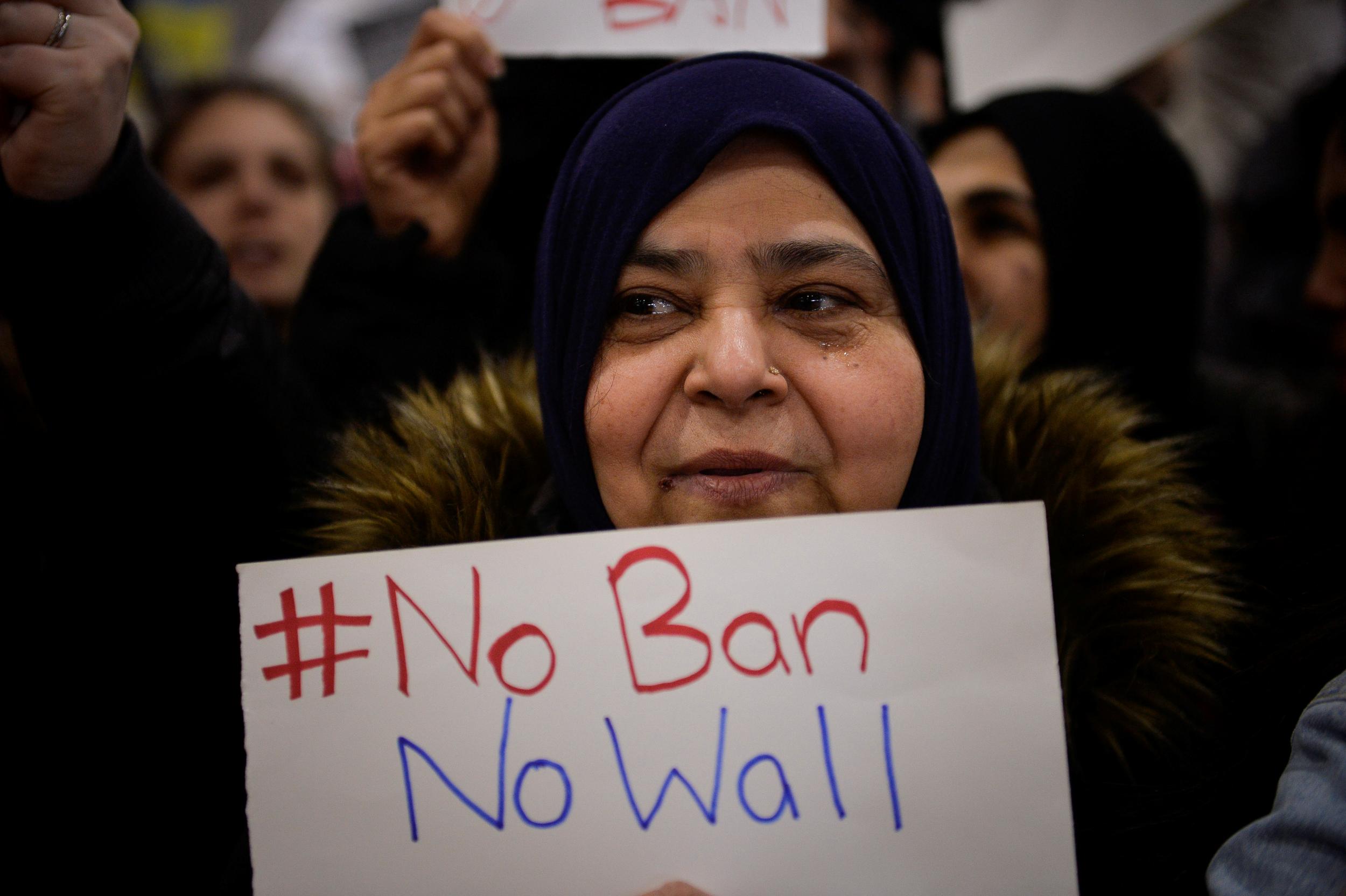Tens of millions of Americans do not believe Muslims and atheists have First Amendment rights, study finds
Of those polled only 37 per cent were unable to name any of the rights granted under the amendment

Your support helps us to tell the story
From reproductive rights to climate change to Big Tech, The Independent is on the ground when the story is developing. Whether it's investigating the financials of Elon Musk's pro-Trump PAC or producing our latest documentary, 'The A Word', which shines a light on the American women fighting for reproductive rights, we know how important it is to parse out the facts from the messaging.
At such a critical moment in US history, we need reporters on the ground. Your donation allows us to keep sending journalists to speak to both sides of the story.
The Independent is trusted by Americans across the entire political spectrum. And unlike many other quality news outlets, we choose not to lock Americans out of our reporting and analysis with paywalls. We believe quality journalism should be available to everyone, paid for by those who can afford it.
Your support makes all the difference.Nearly a quarter of Americans do not believe or do not know if Muslims and atheists are granted the same constitutional rights as other citizens, according to a new poll.
Of those surveyed by the University of Pennsylvania’s Annenberg Public Policy Centre, 22 per cent did not believe or did not know if Muslims in the US had First Amendment rights.
The First Amendment states: “Congress shall make no law respecting an establishment of religion, or prohibiting the free exercise thereof; or abridging the freedom of speech, or of the press; or the right of the people peaceably to assemble, and to petition the Government for a redress of grievances.”
As a result Congress is banned from passing laws that discriminate against people of specific religious faiths.
But when around 1,000 American adults were asked whether they thought it was accurate to say their Muslim countrymen have the same rights as other citizens, 76 per cent said it was very or somewhat accurate.
A further 18 per cent said it was very or somewhat inaccurate and four percent said they did not know.
On the same question regarding atheists, 79 per cent of those surveyed said it was very accurate or somewhat accurate and 15 per cent said it was very or somewhat inaccurate. Five percent said they did not know.
A significant proportion of respondents were not sure of the rights granted by the First Amendment, with just under half able to name freedom of speech as a guaranteed right.
Of the adults polled, 37 per cent were unable to name any of the rights granted under the amendment.
Fifty-three per cent of Americans polled wrongly thought undocumented immigrants are not afforded rights under the constitution.
But the 14th Amendment’s equal protection clause states otherwise: “No state shall make or enforce any law which shall abridge the privileges or immunities of citizens of the United States; nor shall any state deprive any person of life, liberty or property, without due process of law; nor deny to any person within its jurisdiction the equal protection of the laws.”
In 2001, the US Supreme Court ruled in Zadvydas v. Davis that “due process” of the 14th Amendment applies to all aliens in the US whose presence maybe or is “unlawful, involuntary or transitory”.
“Protecting the rights guaranteed by the Constitution presupposes that we know what they are. The fact that many don’t is worrisome,” said Kathleen Hall Jamieson, director of the Annenberg Public Policy Center.
“These results emphasise the need for high-quality civics education in the schools and for press reporting that underscores the existence of constitutional protections.”
Join our commenting forum
Join thought-provoking conversations, follow other Independent readers and see their replies
Comments